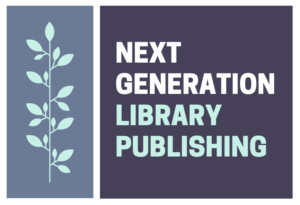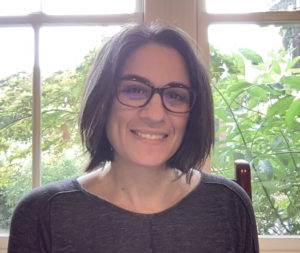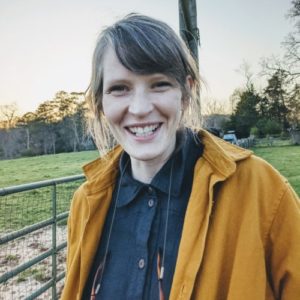As libraries consider their options for supporting open access, the benefits are clear. It’s a way to disseminate research that aligns with institutional values. But just how to set up an efficient, community-based mechanism to achieve that has not been not as clear.
 The Next Generation Library Publishing (NGLP) project is working to change that by providing libraries with resources to create a robust, values-driven, and community-led system to share knowledge. With support from an Arcadia Fund grant, the NGLP began as a collaboration of Strategies for Open Science (Stratos), the California Digital Library (CDL), and Educopia with three co-investigators: Kristen Ratan, Catherine Mitchell and Katherine Skinner.
The Next Generation Library Publishing (NGLP) project is working to change that by providing libraries with resources to create a robust, values-driven, and community-led system to share knowledge. With support from an Arcadia Fund grant, the NGLP began as a collaboration of Strategies for Open Science (Stratos), the California Digital Library (CDL), and Educopia with three co-investigators: Kristen Ratan, Catherine Mitchell and Katherine Skinner.
The team gathered feedback from the library community, developed open-source software, and has piloted technology solutions that are showing promising results. Their aim is to provide tools that will help librarians become key players as publishers – complementing their work as repository managers – to offer a sustainable, non-commercial alternative as knowledge brokers.
“Library publishers have paved the way for Diamond Open Access and, by seeding a new ecosystem, NGLP is establishing equitable access to high quality publishing for nonprofits who are aligned with the scholars they serve,” says Ratan, founder of Stratos and former PLOS Publisher. “We are returning publishing to the hands of the Academy.”
To build a scalable model, Ratan says, solid, shared open-source infrastructure is needed, along with a robust cohort of trusted service providers. In the three years since NGLP received its grant, the team has made progress toward that goal with a set of successful pilots completed and is now seeking an additional round of funding.
One pilot included five library publishers interested in testing a turnkey, hosted journal and institutional repository solution. Another, led by California Digital Library (CDL), tested the NGLP ecosystem’s ability to serve a large consortial publisher hosting in-house. And yet another, led by University of North Carolina Press and Longleaf Services, tested a journal and journal portal solution. All participants are eager to continue production services.
In the wake of the recent memo from the White House Office of Science and Technology requiring the open sharing of federally funded research outputs, there has never been a better time to invest in equitable open, not-for-profit models to support scholarly communications, says Ross Mounce, director of open access programmes at Arcadia. Outsourcing to commercial vendors has not worked well for many decades — it has been too costly and has unnecessarily suffocated access to research, he notes.
“We need much better governance and greater control over these highly valuable communications and the platforms on which they are published,” Mounce says. “The Next Generation Library Publishing project is an especially timely pathway available for U.S. library systems and beyond to rationalize insourcing of scholarly communication functions to achieve greater overall impact and return on investment. I think NGLP has a very bright future ahead of it.”
NGLP aims to bring together currently siloed tools and services, and to emphasize transparent operations to demonstrate the potential benefits of a collective business framework. It supports the development of a variety of publishing solutions to give library communities choice.
Talking with other librarians early in the grant process, the NGLP team got a keen sense of the gaps and types of solutions needed.
“We heard loud and clear that library publishers really want options that are community-centered, values-driven, and aligned with their institutional goals,” says Mitchell, director of publishing, archives, and digitization at the California Digital Library (CDL). “That’s been a driving force in understanding the purpose of the project.”
CDL publishes 95 open access journals that are affiliated with the University of California academic community, and Mitchell says they can’t keep up with the demand. The library has an established publishing and repository infrastructure similar to what NGLP is trying to build, but it is in need of a technical refresh. She hopes working with the promising open-source technologies associated with NGLP will free up local capacity at CDL so they can continue to grow the program.
Several organizations, including CDL, have piloted some of the new open-source software and are poised to convert to production services.
“Diamond Open Access is such an important piece of the open access puzzle, as an alternative that addresses the needs of disciplines that lack substantial grant funding or that have been poorly served by the commercial publishers,” says Mitchell, “including small or emerging disciplines with limited audiences.” These fields are not considered money makers, she says, but they are no less important a part of academia.
Since open access helps make research more widely available and community-based systems can amplify diverse scholarly voices, the NGLP project also helps to begin to address issues of equity and representation, adds Mitchell.
“We think it’s important for there to be equity not only in access to knowledge but also in its production” Mitchell says. “Institutions should take more of a guiding role in the distribution of the research that they are funding and supporting on their campuses—rather than simply outsourcing this role to commercial companies.”
Educopia Institute was brought in as partner in the grant to leverage its expertise in community building with the library publishing community, says Skinner, former executive director of Educopia and now an independent consultant.
Initially, technology developers came to the table guardedly, she says, but built trust and respect for each other over time. By operating in the open, the process of developing a working system went faster than usual, and the project demonstrates how groups can effectively work together, Skinner says. For example, Janeway paired its manuscript submission system with the NGLP-built Meru web delivery platform to offer a turnkey journal and institutional repository solution. Cast Iron Coding, the developer of Meru, is hosting the platform for Longleaf Services, who is serving the publishing needs of the University of North Carolina Press.
Jessica Meyerson, Educopia’s co-executive director, believes NGLP represents a critical intervention in the scholarly communication environment — realizing, at scale, the dual goals of community-driven, open infrastructure for knowledge production, and global open access to scholarly research publications.
The co-investigators say response to the project has been overwhelmingly positive from the library community. The next step will be to promote adoption of the new tools.
Adds Mitchell: “We’re enthusiastic. We think that we’re onto something great here.”
To learn more about this project, visit the NGLP site and also look for recordings of its recent webinars.
#


